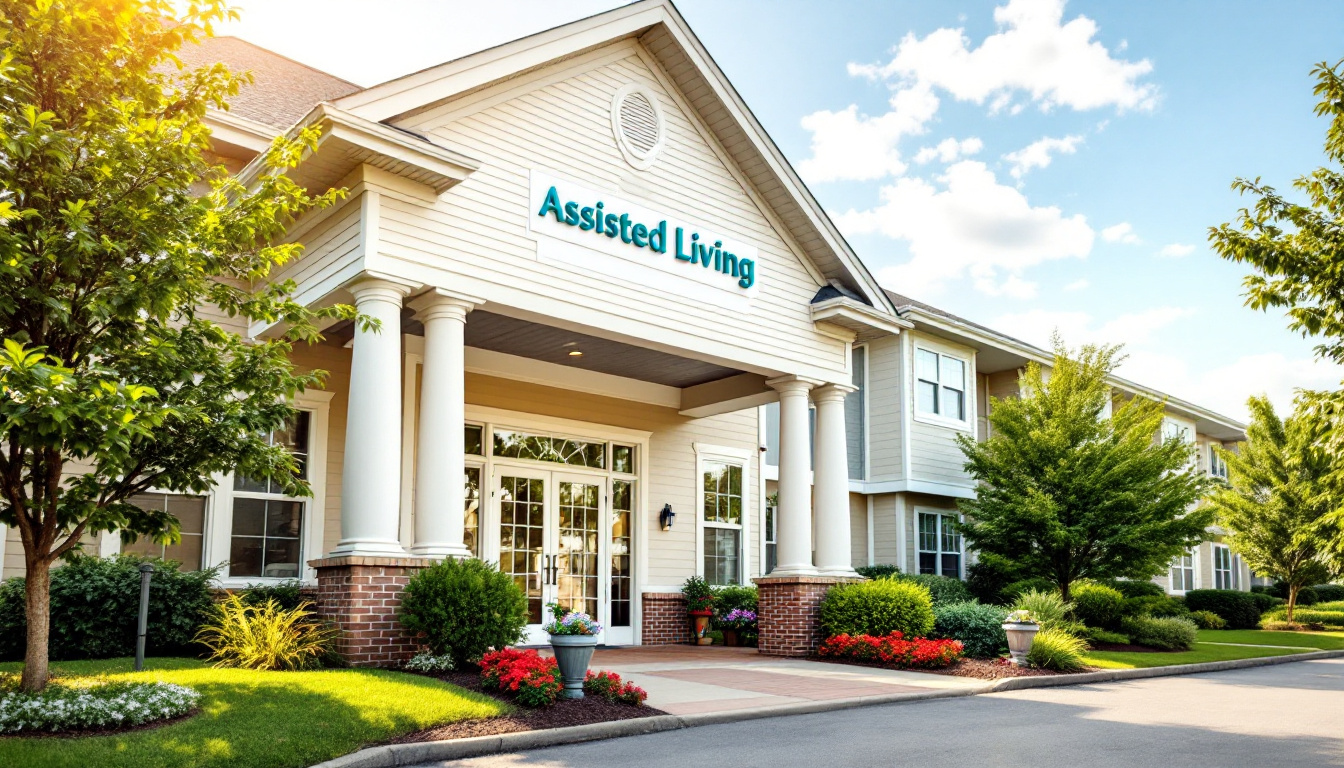The Role of Activities in Senior Care and Long-Term Health
Enhancing Quality of Life Through Activity Programs in Elder Care

Understanding the Importance of Activities in Senior Health
Activities are integral to supporting healthy aging in seniors by promoting physical, mental, and emotional well-being. Engaging in hobbies, social interactions, and therapeutic programs can significantly enhance quality of life, prevent chronic illnesses, and maintain independence among older adults. This article explores the vital role that varied activities play in long-term care settings and how personalized, adaptive programs can foster holistic health for seniors.
The Significance of Activities in Promoting Senior Well-being

Why are activities important for seniors?
Engagement in social and leisure pursuits is crucial for maintaining a high quality of life as seniors age. Activities provide more than just entertainment; they are fundamental to supporting physical health, mental clarity, and emotional stability. For instance, recreational pursuits like gardening, arts and crafts, and group exercises help manage chronic conditions, enhance mobility, and improve balance.
Beyond physical benefits, participating in activities fosters mental sharpness by engaging residents in cognitive exercises such as puzzles, reading groups, and reminiscence therapy. Social interactions through community events, birthday parties, or coffee chats can significantly reduce feelings of loneliness and isolation.
Many seniors find joy and purpose through activities that reflect their interests and capabilities. These engagements boost mood, foster independence, and promote resilience, ultimately contributing to healthier and more fulfilling aging experiences.
The role of activities in promoting seniors' health and well-being
Organized activities play a vital role in enhancing both the physical and mental health of older adults. Tailored programs that incorporate resistance training, walking, and social interaction can lead to noticeable improvements in everyday functions and sleep quality, reducing the risk of falls, managing chronic illnesses, and calming symptoms of depression and anxiety.
Environmental adjustments—like proper lighting and noise control—along with resident-involved planning, increase participation and satisfaction. Furthermore, technology such as virtual reality and online games is opening new avenues for engagement, making activities more accessible and exciting.
Health benefits extend to cognitive preservation, emotional expression, and social bonding. This holistic approach helps residents maintain independence longer, improves their overall sense of well-being, and supports a more vibrant community in long-term care settings.
| Aspect | Benefits | Additional Details |
|---|---|---|
| Physical health | Reduced fall risk, better mobility, lower blood pressure | Exercise routines like yoga, walking clubs, and chair exercises |
| Mental health | Preserved cognition, reduced depression | Cognitive games, reminiscence, arts, and music therapy |
| Emotional well-being | Increased purpose and happiness | Celebrating milestones, pet therapy, and music sessions |
| Social interaction | Fights loneliness, builds community | Group activities, social clubs, intergenerational programs |
Engagement in activities not only nurtures physical and mental health but also reinforces dignity, independence, and social bonds. It is a cornerstone of compassionate, person-centered care for older adults.
Activities and their Impact on Physical and Mental Health

What is the role of activities in promoting seniors' health and well-being?
Activities play an essential role in maintaining and enhancing the overall health of older adults. For residents in nursing homes and long-term care settings, participation in social, recreational, and therapeutic activities supports physical, mental, and emotional well-being. These engagements help combat loneliness, reduce feelings of anxiety and depression, and slow cognitive decline, which is particularly important for residents with dementia.
Regular involvement in physical activities such as walking, stretching, and balance exercises improves mobility, muscular strength, and cardiovascular health. These activities not only help prevent falls but also aid in managing chronic conditions like diabetes and hypertension. Mentally, engaging in games, music, or reminiscence therapy keeps the brain active, enhances cognitive functions, and fosters social connections.
Participation in meaningful activities provides residents with a sense of purpose, achievement, and belonging. Such stimulation supports emotional resilience and can even extend longevity. Overall, diverse and personalized activities contribute to a higher quality of life, help maintain independence, and promote holistic health in aging populations.
Assessing and Supporting Long-term Care Needs through ADLs and IADLs

How do activities of daily living (ADLs) and instrumental activities of daily living (IADLs) assist in assessing and addressing long-term care needs?
ADLs and IADLs serve as essential tools for evaluating an older adult's ability to live independently. ADLs include fundamental tasks such as bathing, dressing, eating, transferring, toileting, and maintaining continence. IADLs encompass more complex activities like managing medications, preparing meals, housekeeping, handling finances, shopping, transportation, and caring for pets.
Care providers use these assessments to determine the level of assistance a senior requires. If an individual struggles with two or more ADLs, they may qualify for public assistance programs like Medicaid and may need more comprehensive support within nursing homes or assisted living settings.
These evaluations guide the development of personalized care plans, ensuring that support services—ranging from help with personal hygiene to medication management—are appropriately matched to the resident's capabilities. Regular assessment using tools like checklists allows care teams to monitor changes over time, facilitating timely interventions to maintain independence and improve quality of life.
Understanding the distinction and relationship between ADLs and IADLs helps ensure that residents receive the right level of care, promoting safety, dignity, and well-being in long-term care settings.
Group and Social Engagement as a Pillar for Mental and Emotional Health

How do group activities and social engagement benefit seniors’ emotional and mental health?
Participating in group activities and engaging socially are vital for maintaining the emotional and mental well-being of seniors. These activities foster meaningful social connections, helping residents combat loneliness and feelings of social isolation. When seniors interact with others through activities like book clubs, music sessions, or festive events, they experience emotional support, which bolsters their self-esteem and sense of belonging.
Social participation also stimulates cognitive functions, helping seniors stay mentally agile and potentially reducing the risk of cognitive decline, including dementia. Engaging in hobbies, volunteer work, or community involvement enhances feelings of purpose and accomplishment, contributing further to emotional resilience.
Moreover, social activities promote a sense of normalcy and joy, which are essential in fostering positive mental health. They can act as protective factors against depression and anxiety, ultimately supporting a healthier and more fulfilling aging process.
How does social engagement enhance emotional resilience and cognitive health?
Regular involvement in social activities helps seniors build strong emotional resilience, enabling them to better cope with stress and life's challenges. These interactions generate a network of support, which provides comfort during difficult times.
Cognitively, social engagement involves mental processes such as conversation, memory, and problem-solving, which keep the brain active. Activities like puzzle games, discussion groups, and reminiscence therapy not only entertain but also challenge the mind, helping to slow cognitive decline.
Community programs and hobbies also foster a sense of purpose and confidence. Feeling valued and needed, seniors often show increased motivation and positivity, which further supports mental health. Overall, social engagement combines emotional support with cognitive stimulation, creating a holistic approach to healthy aging.
Personalized and Environment-Adaptive Activities for Better Quality of Life
Why is tailoring activities to individual needs important for seniors?
Personalized activities are vital because they directly address each resident’s unique physical, cognitive, and emotional needs. When activities are tailored to individual preferences, abilities, and interests, residents are more likely to participate actively and enjoy the experience. This enhances their sense of purpose, independence, and self-esteem.
Research shows that adaptive, person-centered activities increase social participation and improve psychological well-being. For example, reminiscence therapy or art activities adapted to an individual’s background can spark meaningful engagement and emotional connections. These tailored approaches also support residents’ functional autonomy by encouraging involvement in daily routines and hobbies.
Furthermore, individualized activities promote social integration, reducing feelings of loneliness and isolation. When residents find activities relevant and accessible, they experience greater satisfaction, which can lead to improved mental health and overall quality of life.
How do environmental modifications support activity engagement?
Environmental adjustments are crucial for creating safe and inclusive spaces that facilitate engagement. Easy access to activity areas, proper lighting, noise control, and adaptive devices help reduce physical and environmental barriers.
For example, installing handrails, non-slip flooring, and adjustable furniture can support mobility and safety. Sensory-friendly lighting and sound-proofing help residents with sensory sensitivities or cognitive impairments participate comfortably.
Organizational policies and physical space modifications foster a more welcoming environment that encourages involvement. Technology such as virtual reality or digital tablets offers new avenues for participation, especially for residents with limited mobility.
In summary, combining personalized activities with thoughtful environmental modifications ensures that seniors can engage meaningfully and safely. These strategies collectively foster an environment of active, healthy, and socially connected aging, ultimately enhancing the quality of life for residents in nursing homes and other long-term care settings.
The Impact of Activity-Based Interventions on Dementia and Cognitive Health

How do activity interventions support cognitive function in dementia?
Engaging in targeted activities plays a crucial role in supporting cognitive health among individuals with dementia. These interventions stimulate the brain, helping slow down the progression of cognitive decline and maintain mental functions. Activities such as memory games, reminiscence therapy, and sensory stimulation are designed to activate different parts of the brain, encouraging mental engagement.
Personalized activity programs that match the individual's abilities, interests, and history are particularly effective. They not only promote cognitive stimulation but also bolster social interaction, emotional well-being, and a sense of autonomy. This comprehensive approach can reduce behavioral and psychological symptoms like agitation and depression, improving overall quality of life.
Examples of therapeutic activities beneficial for dementia
| Activity Type | Description | Benefits |
|---|---|---|
| Reminiscence therapy | Using photographs, music, or familiar objects to evoke memories | Enhances memory recall, social connection, and emotional comfort |
| Music therapy | Playing or singing familiar songs | Boosts mood, reduces agitation, and stimulates cognitive pathways |
| Art activities | Painting, crafting, and drawing | Promotes self-expression, cognitive engagement, and relaxation |
| Sensory activities | Using touch, smell, or sight to stimulate senses | Improves mood, reduces anxiety, and enhances sensory processing |
These activities can be adapted to fit individual preferences and physical abilities, making engagement more accessible and meaningful.
Broader effects and importance in dementia care
Research indicates that activity-based approaches not only support cognitive functions but also help manage behavioral symptoms, improve emotional health, and preserve dignity for residents. Incorporating such strategies into comprehensive care plans is essential for promoting well-being among individuals living with dementia, ultimately enhancing their quality of life.
Fostering Active Engagement for Healthier Aging
Integrating a variety of structured, personalized, and adaptive activities in senior care settings is crucial to supporting overall health and well-being. These activities not only help manage chronic conditions and delay cognitive decline but also foster social connections, promote independence, and enhance life satisfaction. Professional support, regular assessments, and environmental modifications are keys to creating engaging environments that meet individual needs. By prioritizing activity programs, caregivers and care facilities can significantly improve seniors’ quality of life and facilitate aging with vitality and purpose.
References
- Activity Engagement: Perspectives from Nursing Home Residents ...
- The Importance of Recreation and Wellness in Senior Health
- Exercise and Social Activity Improve Everyday Function in Long ...
- Activities of Daily Living and the Need for Long-Term Care
- Enriching Assisted Living and Nursing Home Activities
- "Activities of Daily Living" and the Need for Long-Term Care
- The Vital Role of Activities Directors in Nursing Homes
- Understanding Activities of Daily Living for the Elderly
- Physical, social, and symbolic environment related to physical ...





































































































